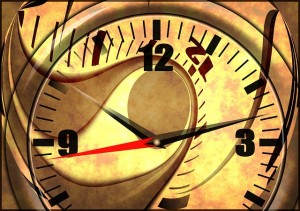Blog del Instituto Cervantes de Dublín
Torre Martello
Taller de Escritura Creativa / Creative Writing Workshop

Autor la imagen: Mikegi. Fuente: Pixabay
El tema elegido por su profesora, Ana García Sáez, ha sido «Aprovecha la vida, que el tiempo pasa». Los alumnos han analizado cómo estos dos tópicos tan recurrentes, el Carpe diem y el Tempus fugit, han aparecido a través de la historia no solo en obras relacionadas con la literatura española, sino también en la música, el cine, la pintura y la publicidad.
Ana ha impartido estas las clases dándole un tratamiento cronológico al estudio de los dos tópicos. Empezando por la Antigüedad clásica y pasando por la Edad Media, el Renacimiento, el Barroco y el Romanticismo hasta llegar a las generaciones literarias del siglo XIX, con predominio del estudio de la Edad Contemporánea.
Los alumnos han analizado y reflexionado sobre algunas de las obras de los escritores más representativos del legado de oro de nuestra literatura española. Escritores como Jorge Manrique, Garcilaso de la Vega, Góngora, Quevedo y Bécquer, hasta llegar a Machado, Cernuda, Delibes y Vargas Llosa, sin olvidarnos de escritores hispanoamericanos como Julio Cortázar.
A pesar de que inicialmente se pensó que este programa era muy ambicioso, dado el alto contenido teórico de literatura española que se iba a impartir, la profesora del curso afirma con gran orgullo que el resultado ha sido un éxito y se siente muy satisfecha con el trabajo realizado por los alumnos, quienes han demostrado de manera notable su creatividad y originalidad mediante la composición de fragmentos literarios de diferentes géneros.
Para hacer homenaje a la labor realizada por sus participantes, el Instituto Cervantes se enorgullece de publicar algunas de las composiciones realizadas.
Deseamos que las disfrutéis leyéndolas. A todos aquellos estudiantes que tengan pasión por la escritura, tal vez les sirva de motivación para participar en este taller.
Texto: Ana García Sáez
Traducción: Cristina Rascón García
Since 2012, Instituto Cervantes in Dublin has been teaching a Creative Writing Workshop. This course helps students to foster their invention abilities and improve their cultural literacy through literary works and passages, previously viewed in class.
The topic has been chosen by their teacher, Ana García Sáez, which is “Aprovecha la vida que el tiempo pasa” (“Make the most of your life, as time moves on”). Students had analyzed and reflected on how these two frequent topics, Carpe diem and Tempus fugit appeared through the history, not only in works related with Spanish literature, but also related with the music, the cinema, the painting and the advertising.
Ana has taught these classes giving a chronologic importance to the study of these topics. Beginning with the Classic ages and passing by the Middle Ages, the Renaissance, the Baroque and the Romanticism until the literature of the XIX century, with especial attention to contemporary literature.
The students analyzed and reflected on many works of the most representative writers of the Spanish Golden Age. Writers such as Jorge Manrique, Garcilaso de la Vega, Góngora, Quevedo and Bécquer, incuding Machado, Cernuda, Delibes and Vargas Llosa, not forgetting Hispano-American writers as Julio Cortázar.
Even though, initially this program was very ambitious, due to the elevated theorist content of the Spanish Literature that it was thought to teach, the teacher of the course claims with proud that the result has been successful and she is quite satisfied with the work done by the students, who had showed their creativity and freshness by the composition of pieces of different literary styles.
To honor the work done by the participants, Instituto Cervantes in Dublin is proud of publishing some of their compositions. We hope you can enjoy reading them and, for those students passionate for the writing, maybe it will serve you as a motivation to participate in this workshop.
Text by: Ana García Sáez
Translation into english: Cristina Rascón García
Entradas relacionadas
Etiquetas
Ana García Sáez Creative writing Cursos Instituto Cervantes Dublín Escritura creativa ICDublin Courses Our students Spanish Language



